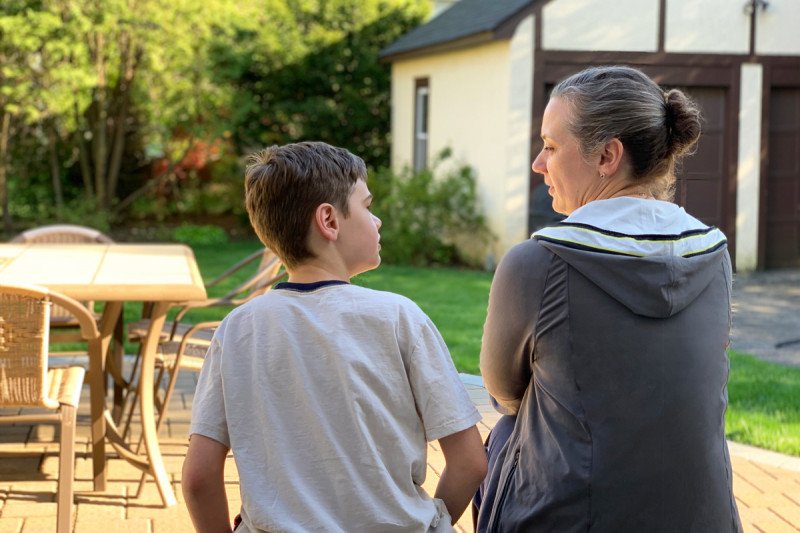
Being honest with your children about COVID-19 ensures they feel safe and protected.
Parenting is challenging. Parenting with cancer is even more challenging. And parenting with cancer during a global pandemic is downright difficult. New routines have disrupted children’s days, and fear and anxiety are heightened. Life is already stressful when a parent has cancer. But there are steps these parents can take to help temper their children’s worries.
Memorial Sloan Kettering social workers Linda Mathew and Meredith Cammarata lead Talking with Children about Cancer. The program helps parents with cancer communicate with their children about the disease. The social workers recommend broaching the subject of COVID-19 with young ones in the house, no matter their age.
“Children can often sense when something is wrong in the home,” says Ms. Cammarata. “Just as we talk about cancer with children, being honest with them about COVID-19 can enhance their feeling of security and trust in this uncertain time.”
Ms. Cammarata and Ms. Mathew share tips on how to do so.
1. Be mindful of age
A child’s age can help you determine what information to share and how to share it. Still, no matter their age, what all young people need right now is to feel safe and loved. Young children (age 3 to 5) will not understand much about COVID-19. It is important to keep information for them simple and honest. For older children (6 to 12), Ms. Cammarata recommends discussing changes in the home and inviting questions. Adolescents, too, might want to ask questions. “Have a discussion with them about what steps your family can take to prevent exposure to COVID-19,” Ms. Cammarata adds.
These conversations are different from those a parent might have with their children about cancer, says Ms. Mathew. You may want to share that the virus is contagious, unlike cancer, and that the family is taking many precautions to stay safe.
2. Provide reassurance but allow for uncertainty
The truth goes a long way. “We recommend that parents answer questions about COVID-19 honestly,” Ms. Mathew says. That means not sugarcoating answers or dramatizing current events. For questions that don’t prompt a straightforward reply, you might say, “That is a really good question, and right now I don’t have the answer,” while at the same time reassuring your child that you and the family are doing everything possible — like washing hands and staying indoors — to do what is in your control. This teaches them how to cope with uncertainty and trust in their own capabilities.
3. Think like your child
COVID-19 can bring up a lot of anxiety in adults and children alike. Shifting into your child’s mindset may help ease some of their stress. For example, children might be frightened to see their parents or other people outside wearing masks. You could explain to them that wearing a mask helps protect people from the virus. You could also try on a mask inside your home so your child is more prepared to see one outside.
4. Limit the family’s news intake
“Watching the news can increase anxiety, confusion, and fear,” says Ms. Mathew. She says that young children should not watch the news and that if teens want to watch, they should watch with their parents and then discuss it afterward.
5. Ask for help
It’s important to get support when you need it. The social workers in MSK’s Talking with Children about Cancer program are experts at helping parents communicate with their children about difficult topics. Call 212-639-7029 to learn more.
— Meredith Begley





